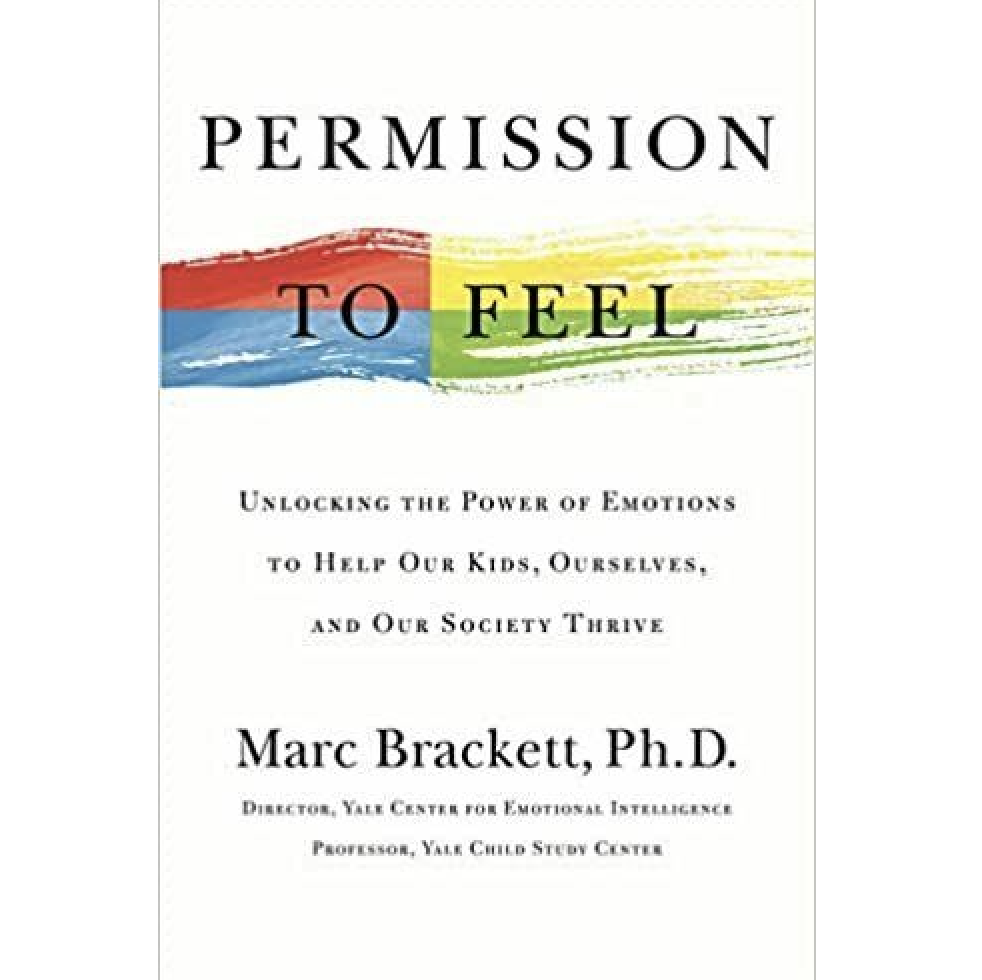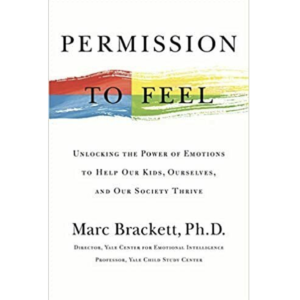

Although western philosophical tradition contends that emotions interfere with rational thought, since Darwin we have understood that emotions are important for our survival, shaping our learning, memory, decision-making, and actions, and health. Brackett details the ways in which our culture of ignoring emotions is adversely affecting all of us, and especially young people. Fortunately, emotional skills (i.e., skills for magnifying our strengths and navigating through social challenges) can be taught Teaching these skills can improve well-being, creativity, academic performance, relationship quality, and leadership skills. Brackett and colleagues developed the RULER framework to summarize the critical skills for building emotional competency.
The first skill in the RULER acronym is recognizing emotions through verbal and non-verbal signals in ourselves and others. Factors such as culture, personality, context, and technology can affect our ability to recognize emotions. A “mood meter,” which sorts emotions based on the degree of pleasantness and on the degree of energy or arousal, can be helpful in understanding the range of emotions that exist and how they relate to one another.
The second RULER skill, and perhaps the hardest to master, is understanding emotions or seeking to answer why one feels a certain way. We should listen to others’ emotional experiences not just to be sympathetic but also to discover the underlying causes of their experiences. Brackett suggests we act like “emotion scientists” developing and testing hypotheses about why we feel certain ways and seeking to gather evidence through question-asking that supports or refutes these hypotheses.
Although there are over 2,000 emotion-related words in English, in general Americans, know and use relatively few emotion words. Labeling emotions facilitates making sense of our emotional experiences, regulating emotions, and helping one another. As such, labeling acts as a hinge between the recognition and understanding components of RULER and the expression and regulation components.
Expressing emotions, including negative emotions, and listening to others’ expressions of emotion are key for understanding, empathizing, and helping one another. Expressing emotions can help build supportive relationships. The final component of RULER, regulating emotions, provides individuals power over which emotions they experience, when and how they experience them, and how they express their emotions. Brackett suggests a few helpful strategies for regulating emotions, including mindful breathing to calm the body and mind, reinterpreting the cause of an emotional experience to change the experience, and planning ahead to avoid triggers of unwanted emotional experiences. He suggests also shifting attention away from stressful encounters, engaging in self-talk, and taking a moment to pause before making decisions with long-term consequences based on short-term emotions.
Emotional regulation is a lifelong journey. Parents can support their children’s emotional skills by honing their own emotional skills and by initiating family conversations about the emotional culture and expectations in the family. Both teachers and students are experiencing a high degree of stress in school. Students will do better in the classroom when they have a strong relationship with their teachers and when they can learn material that feels relevant and important. Teachers understand the importance of social-emotional learning but many feel that they do not have the time or know-how to teach it. Based on his extensive experience introducing the RULER curriculum to schools, Brackett suggests that strong school-based social-emotional learning initiatives require buy-in from all staff, should be practiced daily in a proactive (not reactive) manner and should be integrated into the curriculum across all grade levels and developmental stages.
With the clear, personal, and research-backed insight Brackett strives for nothing short of creating a better society, by encouraging us all to give ourselves and others permission to feel.
Brackett, M. (2019). Permission to feel: Unlocking the power of emotions to help our kids, ourselves, and our society thrive. Celadon Books.




